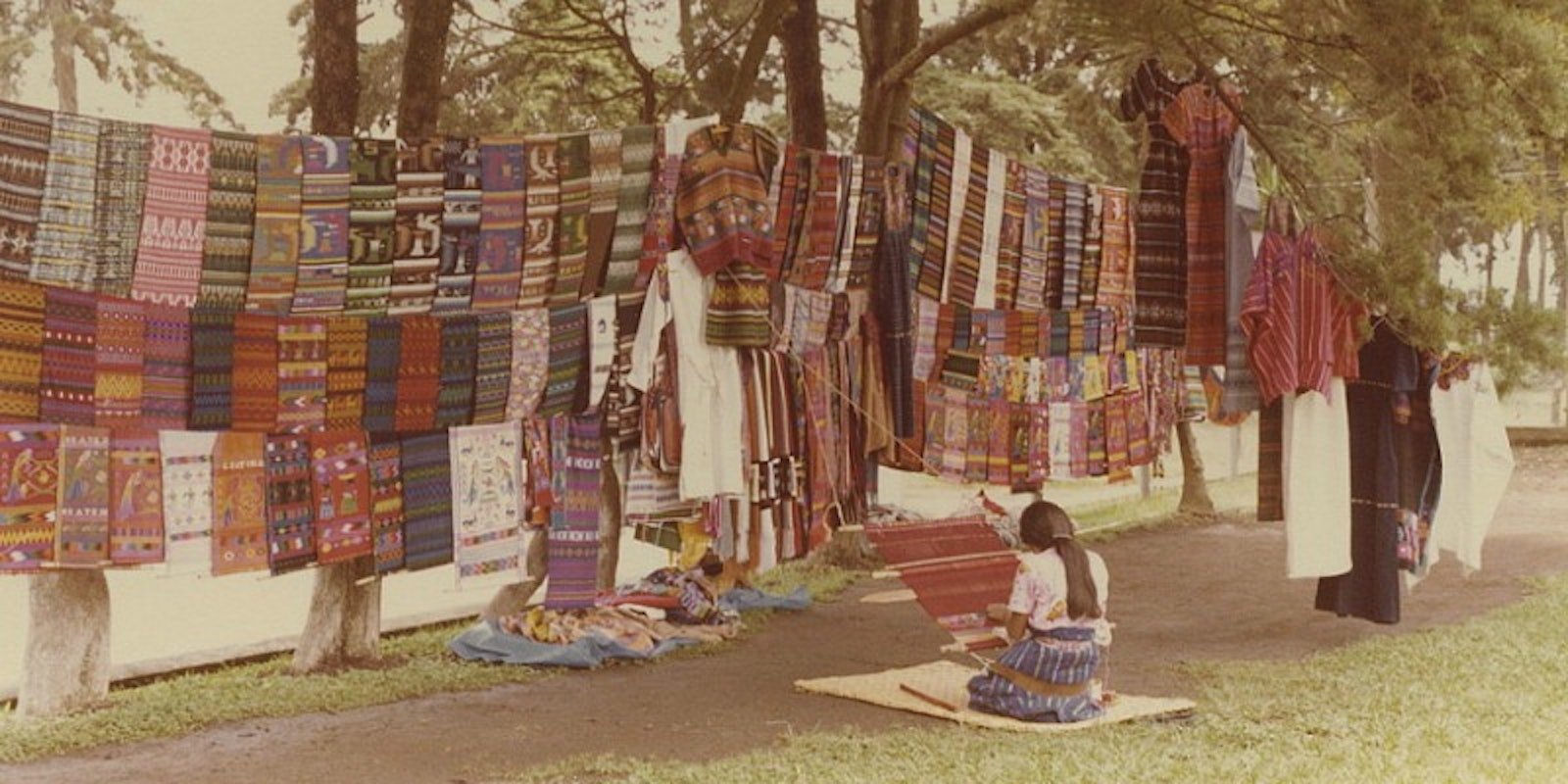Weavers around the world use backstrap weaving to create incredibly complex and beautiful cloth using fairly simple looms. You can find backstrap weavers throughout Asia as well as in Central and South America, including among the Maya of Guatemala. For centuries—possibly even millennia—Mayan weavers have used the backstrap loom to create beautiful cloth full of meaning and great import. Today, thanks to organizations such as Mayan Hands, Mayan weavers (and other artisans) are able to weave and sell their wares to an international audience.
These Friendship Towels by Sarah H. Jackson in the September/October 2014 issue of Handwoven are woven using yarn hand-dyed by Mayan women with help from Mayan Hands.
If you’re a fan of the Mayan backstrap weaving found in Guatemala, the Schweinfurth Memorial Art Center in Auburn, New York, has the exhibit for you. Maya Textiles and Identity in Guatemala features around 125 pieces of Mayan cloth showcasing Mayan weaving from over 50 villages. The exhibit, which runs until October 14, comes from the private collection of former museum curator and current Colgate University professor Carol Ann Lorenz.
Lorenz built her collection with help from Mayan textile experts Marines and Lydia Perez. The exhibit even features cloth woven by 3 generations of the Perez family, including work by Marines, her mother, her sisters, and her niece. The cloths on display from the Perez family feature various designs passed down from one generation of weavers to another and are considered property of the Perez family.
More information on the exhibit and how Lorenz built her astounding collection can be found here. For those interested in learning more from Lorenz and Marines, the two will be on-site October 13 with Lorenz giving a guided tour at 2 p.m. and Marines demonstrating backstrap weaving from 1–3 p.m. Fair-trade Mayan textiles will also be on sale at the museum shop. For those who can’t make the exhibit but want to support Mayan and other indigenous weavers and artisans, consider checking out various fair-trade shops.
—Christina
Featured Image: A Guatemalan weaver at work on her backstrap loom. PHOTO BY INFROGMATION.


